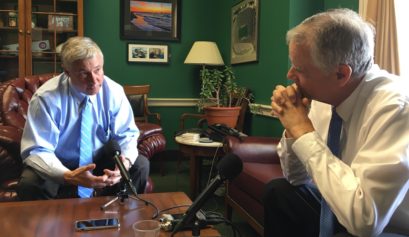Columbia Energy Exchange: Barry Perry
Barry Perry is a chief executive from a remote region of Canada whose company is gradually becoming a major player in North America’s electric power industry. We sat down recently for a discussion on the Columbia Energy Exchange podcast. From St. John’s, Newfoundland, the oldest city in North America, Perry runs Fortis Inc., the largest investor-owned utility in Canada. Since 2004, the company’s assets in Canada, the U.S. and the Caribbean have grown ten-fold to $48 billion. Fortis’ most recent acquisition, one that really put it on the map in the U.S., was ITC, the biggest electric transmission company in America, at a price of $11.3 billion. We visited with each other during one of his visits to Washington to talk about the electric and natural gas business in the U.S. and Canada, the different energy policies of the two…
Continue reading
















